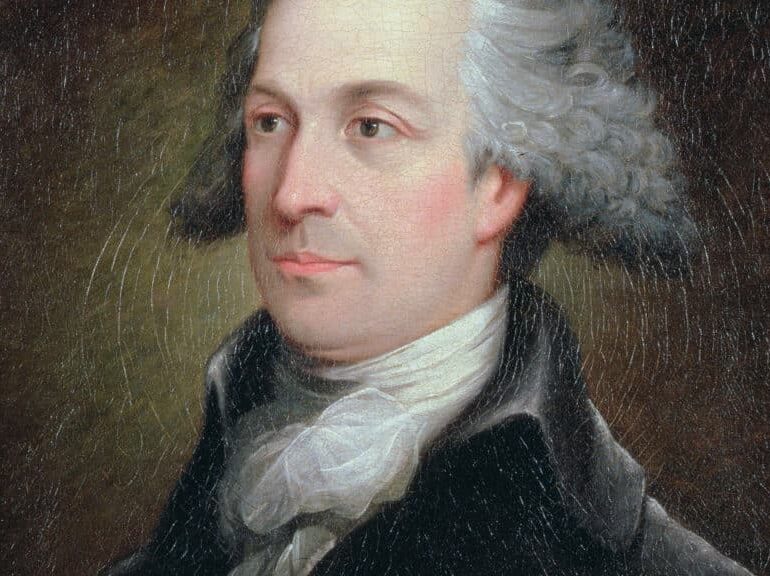
Tench Coxe on the Executive Branch: President, not a King
By: Mike Maharrey
American presidents behave almost like elected kings, exercising vast powers with very little accountability. But that wasn’t the plan. Tench Coxe was a key figure in the ratification debates, and he argued the presidency was designed to be a far cry from a powerful monarch, an institution the founders fought a long, bloody war to secede from.
There was no federal executive under the Articles of Confederation. As the people debated ratifying a new Constitution with a president, many were wary of the powers vested in the proposed executive branch.
On the Anti-Federalist side, Patrick Henry warned that “your president may easily become king.”
Even on the Federalist side, Benjamin Franklin had a similar warning:
“The executive will always increase here, as elsewhere, till it ends in a monarchy.”
But Coxe, who wrote several influential essays in support of the Constitution, was one of the leading and most convincing voices rejecting such fears.
Coxe was a Pennsylvania businessman and a delegate in the Confederation Congress. His work circulated widely outside of Pennsylvania and influenced important state ratification conventions, including those in New York and Virginia.
Coxe’s first major defense of the proposed Constitution took the form of four essays written under the pseudonym “An American Citizen.” They were first published by the Independent Gazetteer in late September 1787.
In his first essay, Coxe took on this notion that the president would effectively be an American king, carefully delineating the difference between the executive in the constitutional system and the British king.
First, he pointed out that the British king was also the head of the established church “with an immense patronage annexed.”
“In this capacity he commands a number of votes in the House of Lords, by creating bishops, who, besides their great incomes, have voted in that assembly, and are judges in the last resort.”
The American president would have no such influence.
“In America our President will not only be without these influencing advantages, but they will be in the possession of the people at large, to strengthen their hands in the event of a contest with him.”
Coxe next pointed out that a king remains on the throne for life. “In America our President will always be one of the people at the end of four years.”
And given that kingship is hereditary, he can be “an idiot, a knave, or a tyrant by nature, or ignorant from neglect of his education,” but he cannot be removed from office. In fact, it was assumed that a king could “do no wrong.”
In contrast, the president was originally “one of the people” and, “He is created by their breath.”
Coxe pointed out that in the constitutional system, there is no assumption of presidential infallibility.
“It appears we have not admitted that he can do no wrong, but have rather presupposed he may and will sometimes do wrong, by providing for his impeachment, his trial, and his peaceable and complete removal.” [Emphasis original]
Coxe also pointed out royal powers that presidents would not be allowed to exercise. For instance, the king was able to create members of the House of Lords.
“Our President not only cannot make members of the upper house, but their creation, like his own, is by the people through their representatives.”
Perhaps most significantly, while the king possessed legislative power, the president wasn’t delegated any authority to make laws. Under the Constitution, the president is only authorized to insert himself into the legislative process with a veto.
“In all great cases affecting the national interests or safety, his modified and restrained power must give way to the sense of two-thirds of the legislature. In fact it amounts to no more, than a serious duty imposed upon him to request both houses to reconsider any matter on which he entertains doubts or feels apprehensions; and here the people have a strong hold upon him from his sole and personal responsibility.”
Coxes emphasized several times that the president will always remain dependent on “the support of his creators” – the people.
Coxes summarized his argument by calling presidential powers “limited and transitory.”
“From such a servant with powers so limited and transitory, there can be no danger, especially when we consider the solid foundations on which our national liberties are immovably fixed by the other provisions of this excellent Constitution.”
Coxe summarized the first essay at the beginning of his second.
“We have seen that the late Honorable Convention, in designating the nature of the chief executive office of the United States, have deprived it of all the dangerous appendages of royalty, and provided for the frequent expiration of its limited powers. As our President bears no resemblance to a king.”
From there, he turned his attention to the proposed Senate, contrasting it with the House of Lords. We’ll discuss this in the next installment of this series.